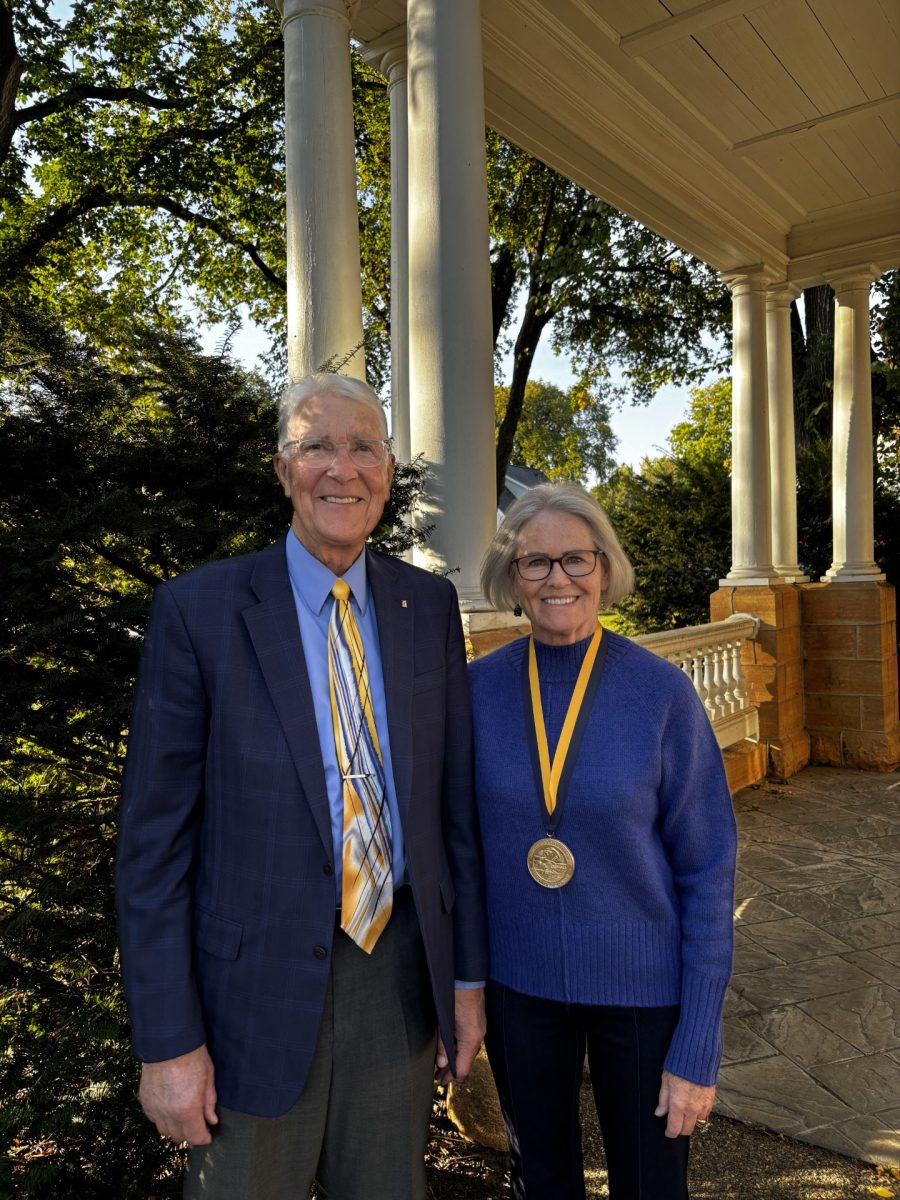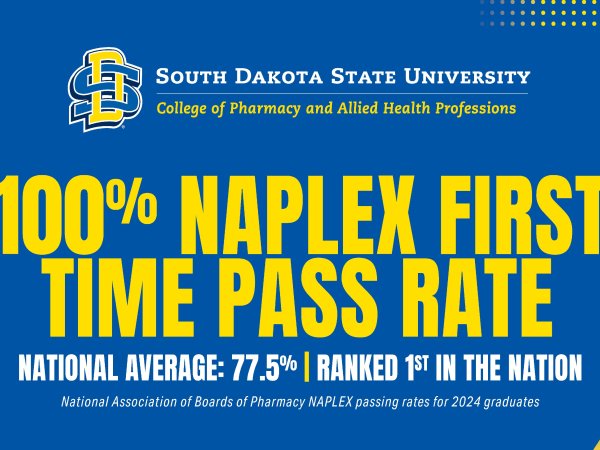Celebrating Honors’ 25th Anniversary
Faculty, students and benefactors of the Van D. and Barbara B. Fishback Honors College celebrated 25 years of Honors at the annual Honors College Convocation on Oct. 24. The convocation was at 5 p.m. in the Woster Celebration Hall in the Alumni Center.
Alumni and administration from the past 25 years that helped elevate Honors were recognized, according to Rebecca Bott-Knutson, dean of the Honors College. One alum from each five year period was recognized, Bott-Knutson said.
Along with alumni, past and present administration that have been involved with Honors were recognized as well.
The Honors College was launched in October of 1999 under the administration of former SDSU President Peggy Miller and Provost Carol Peterson. Miller was president of the university from 1998-2006.
Former President David Chicoine was also recognized, along with former Provost Laurie Nichols. During their tenure, the Honors College expanded with an endowment from Van and Barb Fishback and the building of Honors Hall.
“We’re an endowed college, which means that [the Fishbacks] gave a sum of money to put into an endowment,” Bott-Knutson said. “Every year the interest accrued off of those investments get to fund wonderful things for the Honors College and our students.”
President Barry Dunn and Provost Dennis Hedge were recognized for their continued efforts to grow the Honors College since their start in 2016.
Growth of the Honors College
Over 25 years, the Van D. and Barbara B. Fishback Honors College has seen many changes. In October of 1999, SDSU’s Honors program was elevated to a College and has only been growing since then.
Much of the growth of Honors can be attributed to Van and Barb Fishback, who Honors was officially named after in 2013. They gave $3 million to set up an endowment to support programming within Honors in 2012, which created an additional $1.5 million in matching gifts from other donors. The Fishbacks gave $3.5 million in 2019, with a successful matching challenge. Their 2019 gift was the largest challenge match in the history of SDSU at that time.
Investing in Honors meant students of all disciplines and majors could be reached, according to Van and Barb.
“We decided that by participating in the Honors college, we could sort of be economical with the disciplinary scope,” Van said. “[An Honors distinction] is not something that’s important to only engineers, only pharmacists, or only journalists. It’s something that can be challenging and rewarding for all disciplines, all the colleges on campus.”
One way Honors has grown is through its enrollment numbers.
According to Bott-Knutson, this fall there was a 10% increase in enrollment in Honors 100, which is an Honors orientation class.
“A couple years ago we saw a 29% increase in our enrollment there over the average of the three years prior, and it didn’t stop there,” Bott-Knutson said.
Another change was the building of Honors Hall in 2013, where the Honors’ Living Learning Community (LLC) now lives. The Honors LLC was first located in Pierson Hall and then in Matthews Hall.
While none of the Fishbacks’ endowment went towards building the residence hall, Barb Fishback believes the residence hall brings people in and provides a home for Honors.
“Part of the deal when we made this commitment with (former) President Chicoine was that there be a residence hall,” Barb said. “But, we were not going to put money into bricks and mortar. We wanted money into programming and people.”
Community is a major aspect of the Honors College, according to Brynn Olverson, an SDSU graduate student and former Honors student. Olverson is in her first year of the communication and media graduate program.
She said the small class sizes and community were her favorite part of Honors.
“I feel that because they are smaller class sizes, it starts to become more of a community because you build those interpersonal relationships,” Olverson said. “I feel like no matter what major you are or what activities you do, you always have community and support behind you.”
A recent addition to Honors is a new minor, applied thinking and innovation, which launched this fall. The minor engages students in critical thinking, systems thinking and problem solving skills. It is available to all students with any major, according to Bott-Knutson.
Van Fishback hopes to see Honors continue to evolve for the next 25 years as it has for the last 25.
“There are no finite goals,” Van said. “I think the real value of Honors college is to be able to change and meet the opportunities that come along. We want to see the same energy coming out of the Honors College 25 years from now that we’re seeing today.”



















